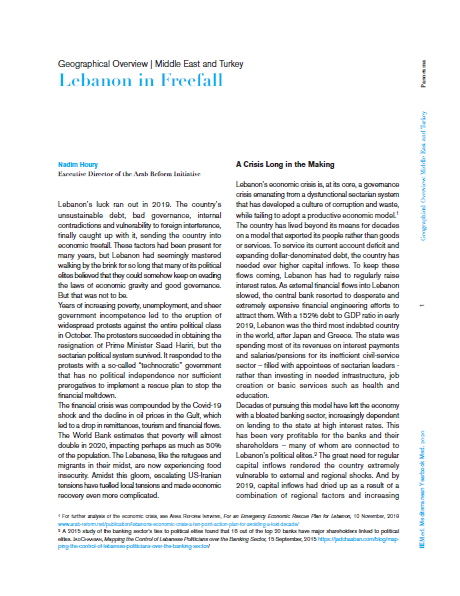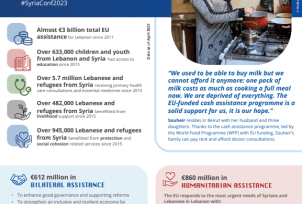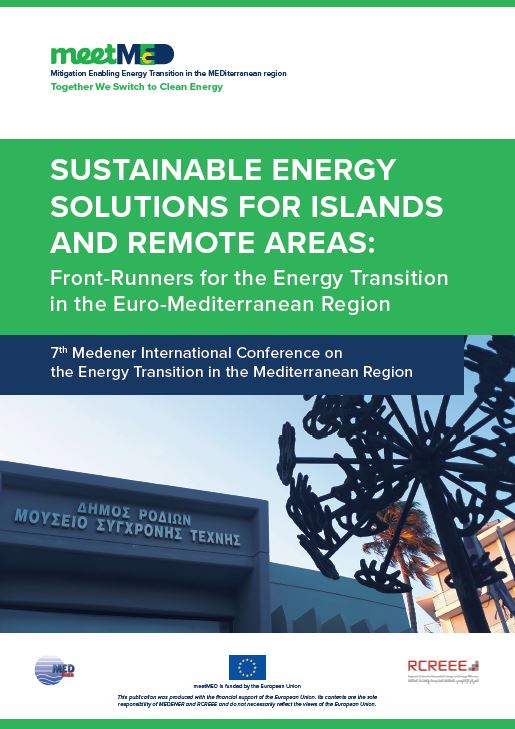IEMed article : Lebanon in freefall

Poverty, unemployment and government incompetence sparked generalized protests against the government and the entire political class in Lebanon in mid-October 2019. On October 29, the protests claimed their first victim. Saad Hariri announced his resignation as prime minister.
And although the political parties, with the support of the Hezbollah party, managed to agree on a new prime minister on January 21, 2020, Hassan Diab, who opted for a technocratic cabinet, the citizenship rejection of the political system is still alive despite Covid-19. In practice, the new government has had neither political independence nor sufficient prerogatives to implement a rescue plan to stop the financial collapse. The Lebanese pound has already lost more than 80% of its value at the beginning of July and the inflation rate for 2020 is expected to be 25%.
Read this preview of an article to be published on the forthcoming IEMed Mediterranean Yearbook 2020 that asesses the critical situation of Lebanon and its vulnerability in the post-Covid19 era.






































